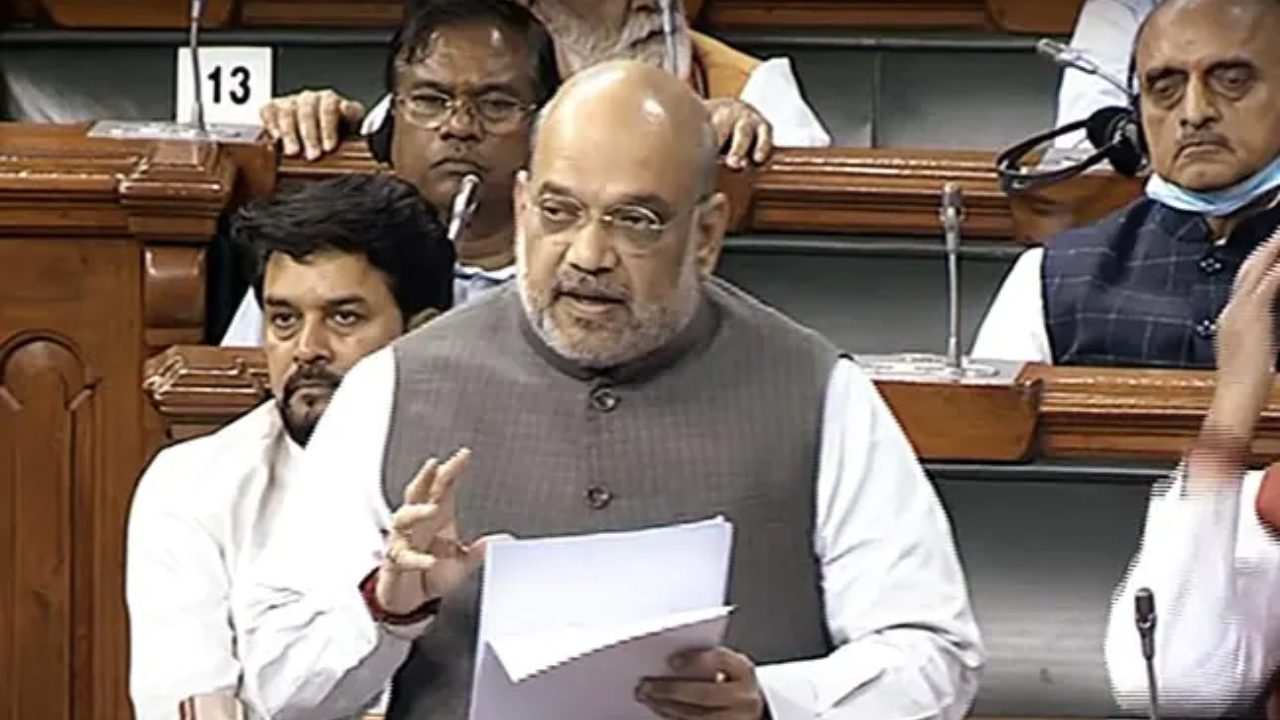The Lok Sabha witnessed a fiery exchange between Union Home Minister Amit Shah and TMC MP Saugata Ray during the debate on Tuesday regarding the Jammu and Kashmir Reservation (Amendment) Bill, 2023, and the Jammu and Kashmir Reorganisation (Amendment) Bill, 2023.
Responding to Saugata Ray’s criticism, Amit Shah questioned the feasibility of a country having two Prime Ministers, two constitutions, and two flags. He defended the government’s decision to abrogate Article 370, stating that it aimed to establish “One Prime Minister, One Flag, One Constitution,” a pledge made since 1950.
Saugata Ray, in his remarks, criticized Amit Shah’s tenure as Home Minister, highlighting the abrogation of Article 370, converting Jammu and Kashmir and Ladakh into Union Territories. He questioned the need for changes in the absence of a Legislative Assembly and emphasized the urgency of holding elections in Jammu and Kashmir.
“They abrogated Article 370 just to fulfil the BJP promise: ‘Ek Pradhan, Ek Nishan, Ek Vidhan’ (One Prime Minister, one flag and one Constitution),” Saugata Ray stated during the debate.
Union Minister Anurag Thakur chimed in, stating that the situation in Jammu and Kashmir has improved since the abrogation of Article 370. He noted the reduction in stone-pelting incidents and the widespread display of the Indian flag in the region.
Two bills were under discussion during the session. The Jammu and Kashmir Reservation (Amendment) Bill, 2023, seeks to amend the 2004 Reservation Act, extending reservation benefits to socially and educationally backward classes. The Jammu and Kashmir Reorganisation (Amendment) Bill, 2023, proposes amendments to the 2019 Reorganisation Act, adjusting the number of seats in the Legislative Assembly and introducing provisions for the nomination of members.
The bills aim to address social and educational disparities while restructuring the political landscape in the union territory. As the debate unfolds, it remains a contentious issue, reflecting the diversity of opinions on the constitutional changes and their impact on the region.
The Jammu and Kashmir Reorganisation (Amendment) Bill, 2023 was introduced in Lok Sabha on July 26, 2023. The Bill amends the Jammu and Kashmir Reorganisation Act, 2019. The Act provides for the reorganisation of the state of Jammu and Kashmir into the union territories of Jammu and Kashmir (with legislature) and Ladakh (without legislature).
The Second Schedule of the Representation of the People Act of 1950 provides for the number of seats in legislative assemblies. The 2019 Act amended the Second Schedule of the 1950 Act to specify the total number of seats in the Jammu and Kashmir Legislative Assembly to be 83.
It reserved six seats for Scheduled Castes. No seats were reserved for Scheduled Tribes. The Bill increases the total number of seats to 90. It also reserves seven seats for Scheduled Castes and nine seats for Scheduled Tribes.
The Bill adds that the Lieutenant Governor may nominate up to two members from the Kashmiri migrant community to the Legislative Assembly. One of the nominated members must be a woman. Migrants are defined as persons who migrated from the Kashmir Valley or any other part of the state of Jammu and Kashmir after November 1, 1989 and are registered with the Relief Commissioner.
Migrants also include individuals who have not been registered due to being in government service in any moving office, having left for work, or possessing immovable property at the place from where they migrated but are unable to reside there due to disturbed conditions.
The Bill adds that the Lieutenant Governor may nominate to the Legislative Assembly one member representing displaced persons from Pakistan-occupied Jammu and Kashmir.
Displaced persons refer to individuals who left or were displaced from their place of residence in Pakistani-occupied Jammu and Kashmir and continue to reside outside such place.
Such displacement should have taken place in 1947-48, 1965, or 1971 due to civil disturbances or fear of such disturbances. These include successors-in-interest of such persons.






















